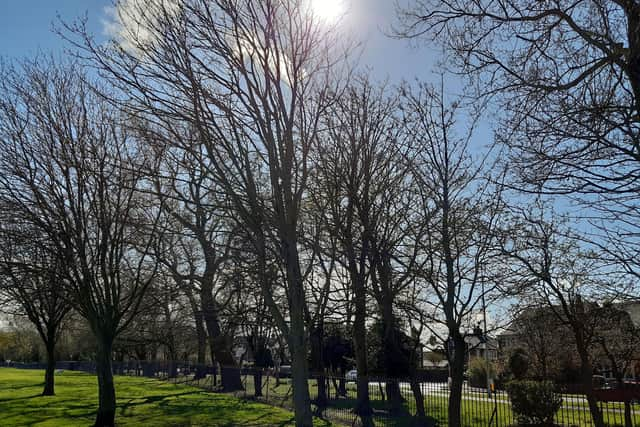Formal strategy to green up Blackpool which has the fewest trees in the whole country
and live on Freeview channel 276
Town hall planners have issued updated guidance which is set to be formally approved by the council's executive.
It is hoped the new supplementary planning document, called Greening Blackpool, will address the resort's current lack of natural environments.
Advertisement
Hide AdAdvertisement
Hide AdIn 2018 Blackpool ranked as the seventh most densely populated area in England outside Greater London.
A council report says nine out of the 21 wards in Blackpool "fall significantly short" of national standards for the amount of open space per person (40 square metres per person).
These neighbourhoods include the inner areas of Claremont, Talbot, Brunswick, Tyldesley, Victoria and Waterloo plus Hawes Side, Highfield and Squires Gate.
Blackpool also has the lowest tree canopy cover in the UK at just 4.4 per cent compared to the national average of around 16 per cent.
Advertisement
Hide AdAdvertisement
Hide Ad

The new planning guidance hopes to address this by providing "direction on the importance for new development to fully consider landscaping and green infrastructure".
This includes open space, sports and play facilities, amenity greenspace, public art, biodiversity and trees.
The council has recently adopted a Green and Blue Infrastructure Strategy which includes the planting of thousands of new trees.
It believes greening up the town will have a positive impact on residents' health, make neighbourhoods look more attractive, benefit wildlife and biodiversity and support Blackpool's climate change agenda.
Advertisement
Hide AdAdvertisement
Hide AdThe report warns Blackpool's "intensely urban nature" worsens health outcomes, but the council is "seeking opportunities to create pocket parks, plant trees and green the town, making it a more pleasant and healthy place to live, work, visit and invest.
"Making the urban environment greener, helping to tackle climate change and protecting and enhancing the natural environment and resources is a vital part of delivering a better Blackpool."
However the council came in for criticism from some quarters in 2019 for spending £100,000 on planting 10 trees in Cookson Street.
Funding came from the £7m quality corridors scheme, with the high cost of the trees being due to the system of planting required in an urban environment.
